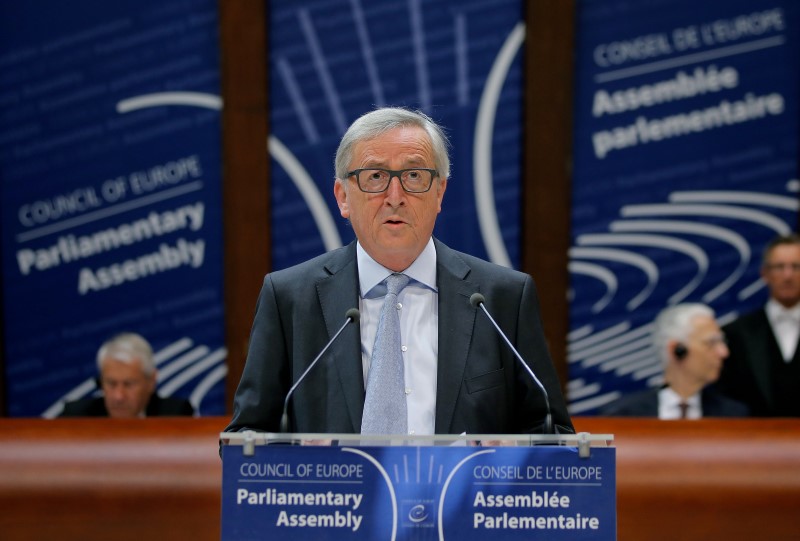By Alastair Macdonald
BRUSSELS (Reuters) - Britain can expect no favours from its neighbours if it votes to "desert" and leave the European Union next month, the EU's chief executive Jean-Claude Juncker said on Friday.
"I'm sure the deserters will not be welcomed with open arms," the European Commission president told French newspaper Le Monde in an interview after being asked about the day after a vote for Brexit in the June 23 EU membership referendum.
"If the British should say No - which I hope they don't - then life in the EU will not go on as before," Juncker added.
"The United Kingdom will have to accept being regarded as a third country, which won't be handled with kid gloves.
"If the British leave Europe, people will have to face the consequences -- we will have to, just as they will. It's not a threat but our relations will no longer be what they are today."
Juncker was underlining a view widely held by EU officials that if Prime Minister David Cameron loses his referendum campaign and comes to a June 28 summit to tell other leaders Britain is leaving, then they and EU institutions may quickly close ranks and make little effort to smooth its departure.
The EU treaty sets a two-year limit for negotiating terms on which a member state leaves. Without unanimous agreement, or all 28 states agreeing to extend talks, the departing state is then excluded from the bloc.
Many Brexit campaigners say they want to negotiate a free trade deal and other terms to continue links to the EU but many diplomats doubt that can be achieved in two years.
Senior EU officials say they see no appetite among member states for lengthy and distracting negotiations with London or for helping Britain avoid disruption after severing its EU ties -- not least to discourage Eurosceptics elsewhere.
If Britons do follow Cameron and vote to remain in the bloc, Juncker said the Union will have to implement the deal the prime minister struck with his EU peers in February. The accord takes effect once Cameron declares that Britain will stay in.
Implementing the deal "won't be easy", Juncker said.

Parts of the agreement, which Cameron says guarantees Britain special status in the bloc, still need to be agreed by the European Parliament and may face legal challenges.